Toyota vs. Honda: A Head-to-Head Warranty Comparison for New Buyers
Understanding Standard Warranty Coverage: The Basics
Before we pit Toyota against Honda, let's quickly demystify the common types of warranties you'll encounter. Typically, new car warranties consist of several layers:
- Basic Limited Warranty (Bumper-to-Bumper): This covers most components, from electrical systems to air conditioning, excluding wear-and-tear items like tires or brake pads.
- Powertrain Limited Warranty: This crucial coverage protects the components that make your car move – the engine, transmission, and drivetrain.
- Rust-Through (Corrosion) Warranty: Guards against body panel rust that perforates the metal.
- Roadside Assistance: A service providing help for flat tires, jump-starts, lockouts, and towing.
- Hybrid/Electric Vehicle Component Warranty: Specific coverage for the high-voltage battery and other unique hybrid or EV components.
Each of these comes with a duration, usually expressed in years or miles, whichever comes first. Now, let's see how our contenders fare.
Toyota's Comprehensive Protection: What You Get
Toyota has built an empire on reliability, and their warranty aims to underscore that confidence. For most new Toyota vehicles, here's what you can expect:
- Basic Limited Warranty: 3 years or 36,000 miles
- Powertrain Limited Warranty: 5 years or 60,000 miles
- Rust-Through Limited Warranty: 5 years or unlimited miles
- ToyotaCare (Roadside Assistance & Maintenance): 2 years or 25,000 miles (includes no-cost maintenance and roadside assistance)
- Hybrid Component Warranty (Model Year 2020 & older): 8 years or 100,000 miles
- Hybrid Component Warranty (Model Year 2021 & newer): A significant upgrade to 10 years or 150,000 miles, covering the hybrid battery and other key components.
ToyotaCare is a notable inclusion, offering not just roadside assistance but also scheduled factory-recommended maintenance for the first two years or 25,000 miles, which is a fantastic perk for new car owners. This adds significant value, potentially saving you hundreds in initial service costs.
Honda's Reliable Assurance: The Details
Honda, much like Toyota, is synonymous with engineering excellence and long-term dependability. Their standard warranty package is quite competitive:
- Basic Limited Warranty: 3 years or 36,000 miles
- Powertrain Limited Warranty: 5 years or 60,000 miles
- Rust-Through Limited Warranty: 5 years or unlimited miles
- Roadside Assistance: 3 years or 36,000 miles
- Hybrid Component Warranty: 8 years or 100,000 miles
As you can see, on paper, many of Honda's coverages mirror Toyota's, especially the basic, powertrain, and rust-through elements. Honda's roadside assistance offering is slightly more extensive than Toyota's basic ToyotaCare period for that specific service, aligning with the bumper-to-bumper duration.
Key Differences: Where They Diverge
While both brands offer robust warranties, the devil is in the details. Here’s a breakdown of the most significant differences:
- Hybrid Battery Warranty: This is perhaps the biggest differentiator for those considering a hybrid vehicle. For 2021 model year and newer vehicles, Toyota offers an impressive 10 years or 150,000 miles on its hybrid components, significantly surpassing Honda's 8 years or 100,000 miles. This extended coverage from Toyota provides exceptional peace of mind for one of the most expensive components in a hybrid car.
- Roadside Assistance & Maintenance: Toyota's inclusion of ToyotaCare for 2 years/25,000 miles means you get complimentary scheduled maintenance in addition to roadside assistance. Honda offers roadside assistance for 3 years/36,000 miles but does not include complimentary scheduled maintenance in its standard package. For buyers who appreciate initial service cost savings, Toyota's offering is a clear advantage.
For conventional gasoline vehicles, the core bumper-to-bumper, powertrain, and rust-through warranties are remarkably similar, making the choice less about these fundamental coverages and more about the extra perks or specific vehicle types.
What These Warranties Mean for Your Wallet and Peace of Mind
A strong warranty isn't just about covering potential repairs; it's about minimizing your financial risk and providing confidence in your purchase. While both Toyota and Honda are celebrated for their reliability, even the most meticulously engineered vehicles can encounter issues. Knowing that major components like your engine or transmission are covered for up to 5 years or 60,000 miles (for both brands) is a significant reassurance.
For hybrid buyers, Toyota's extended hybrid battery warranty for newer models can be a game-changer. The high voltage battery is a critical and costly component, and having coverage that extends for a decade or up to 150,000 miles substantially reduces the long-term ownership risk, especially as these vehicles age. This commitment reflects Toyota's confidence in its pioneering hybrid technology.
Furthermore, the value of roadside assistance, whether it's Toyota's 2-year package with maintenance or Honda's 3-year standalone offering, cannot be overstated. A dead battery or a flat tire on a busy highway is stressful enough without worrying about towing costs or finding a reliable service. These services provide a critical safety net, ensuring help is just a phone call away.
Beyond the Standard: Extended Warranty Options
It's also worth noting that both Toyota and Honda offer various extended warranty and vehicle protection plans. These optional coverages can extend your protection beyond the factory warranty period, often for several additional years and thousands of miles. If you plan to keep your vehicle for a long time, or if you simply prefer maximum peace of mind, exploring these options with your dealership can be a wise move. These plans typically come at an additional cost but can save you from potentially expensive out-of-warranty repairs down the road.
Conclusion
When it comes to new car warranties, both Toyota and Honda stand firm with strong, competitive offerings that underscore their commitment to quality and customer satisfaction. While their basic and powertrain coverages are strikingly similar, Toyota pulls ahead for hybrid vehicle buyers with its significantly extended hybrid battery warranty for newer models, and its ToyotaCare program offers an initial period of complimentary maintenance. Honda counters with a slightly longer period of standalone roadside assistance. Ultimately, your choice might hinge on whether you're buying a hybrid (where Toyota offers a clear advantage in battery warranty), or if the inclusion of complimentary maintenance in ToyotaCare holds more appeal for you. Regardless of your final decision, purchasing a Toyota or Honda means you're investing in a vehicle backed by a solid warranty and a reputation for enduring reliability. Always review the specific warranty details for the exact model year you're considering, as terms can sometimes vary.Where can I find my VIN?

Related Topics
- Beyond the Bumper: Uncovering What Your Mazda Warranty Doesn't Cover
- Car Warranty vs. Car Insurance: What's the Difference?
- Subaru EV and Hybrid Warranty: Is Your Battery Covered for the Long Haul?
- Going the Distance: Understanding Roadside Assistance and Trip Interruption in Your Mitsubishi Warranty Package

